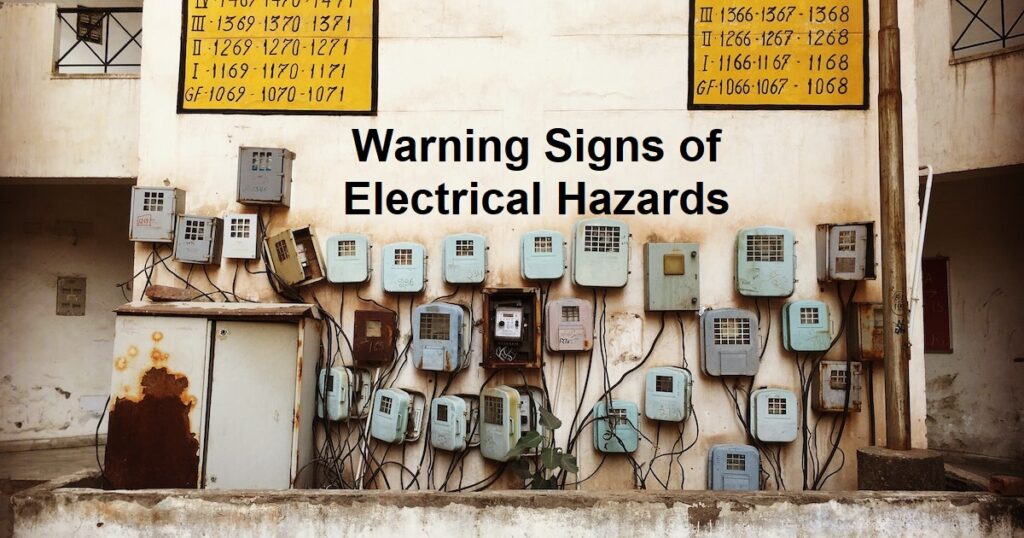Electricity is an essential part of our daily lives. We use it to power our homes, charge our devices, and light up our streets. However, electricity can be extremely dangerous if not handled properly. Electrical accidents can cause serious injury and even death. It’s crucial to be aware of electrical safety hazards and take precautions to protect yourself and those around you. In this article, we will discuss electrical safety awareness and the importance of electrical health and safety.
Understanding Electrical Safety Hazards
Electrical safety hazards are any potential dangers that can result from contact with electricity. Electrical current can cause severe burns, shocks, and electrocution. Electrical accidents can also lead to fires and explosions. Electrical hazards can occur in many ways, including faulty wiring, damaged equipment, and incorrect use of electrical devices.
Common Electrical Safety Hazards
There are several common electrical safety hazards that everyone should be aware of:
Overloading
Overloading electrical outlets and circuits is one of the most common causes of electrical fires. Overloading can occur when too many devices are plugged into a single outlet or circuit.
Faulty Wiring
Faulty wiring can occur due to poor installation, ageing, or damage. Faulty wiring can lead to electrical shock and fires.
Electrical Burns
Electrical burns occur when an electrical current passes through the body. Burns can range from minor to severe and can result in permanent damage or even death.
Electrical Shocks
Electrical shocks occur when electrical current passes through the body. Even a mild electrical shock can be dangerous and can cause muscle contractions, burns, and even death.
Electrocution
Electrocution occurs when an electrical current passes through the body and affects the heart. Electrocution can lead to cardiac arrest and death.

Warning Signs of Electrical Hazards
It’s important to be aware of warning signs that indicate the presence of electrical hazards. Some common warning signs include:
- Flickering lights or dimming lights
- Burning smells or unusual odors
- Buzzing or humming sounds
- Electrical outlets or switches that are warm to the touch
- Electrical shocks or tingling sensations
Steps to Take in Case of Electrical Emergencies
In case of an electrical emergency, it’s crucial to act quickly and appropriately. Some steps to take in case of electrical emergencies include:
- Turn off the power source immediately
- Call for emergency services
- Administer first aid if necessary
- Evacuate the area if there is a risk of fire or explosion
How to Prevent Electrical Accidents
Preventing electrical accidents is essential to ensure electrical safety. Some measures to prevent electrical accidents include:
- Avoid overloading outlets and circuits
- Use electrical devices and equipment according to the manufacturer’s instructions
- Keep electrical devices and equipment away from water and moisture
- Regularly inspect electrical devices and equipment
- Use surge protectors to prevent power surges
- Hire a qualified electrician for electrical installations and repairs
- Keep children and pets away from electrical devices and equipment
- Never touch electrical devices or outlets with wet hands
- Replace damaged or frayed cords immediately
Importance of Electrical Awareness and Training
Electrical awareness and training are crucial to promoting electrical safety in all environments. Employers should provide electrical safety training to employees to ensure that they are aware of electrical hazards and know how to prevent electrical accidents. Homeowners should also educate themselves and their families about electrical safety to protect themselves from electrical hazards.
Best Practices for Electrical Safety at Home and Workplace
Following best practices for electrical safety can reduce the risk of electrical accidents. Some best practices for electrical safety include:
- Have regular electrical inspections by a qualified electrician
- Label circuit breakers and fuse boxes to ensure quick identification in case of emergencies
- Use GFCI (ground-fault circuit interrupter) outlets in wet areas, such as kitchens and bathrooms
- Use extension cords only as a temporary solution and never as a permanent power source
- Avoid using damaged or frayed cords and replace them immediately
Electrical Safety Equipment and Gear
Using appropriate electrical safety equipment and gear can reduce the risk of electrical accidents. Some common electrical safety equipment and gear include:
- Insulated tools and equipment to protect against electrical shock
- Personal protective equipment (PPE) such as gloves, boots, and helmets
- Voltage detectors to identify the presence of live electrical current
- Fire extinguishers to prevent electrical fires

How to Choose the Right Electrician
Choosing the right electrician is crucial for ensuring electrical safety at home or the workplace. Some tips for choosing the right electrician include:
- Check for appropriate licenses and certifications
- Ask for references and check reviews online
- Ensure that the electrician has adequate insurance coverage
- Get a written estimate for the work to be done
- Don’t choose based solely on price
Conclusion
Electrical safety awareness is crucial for protecting yourself and those around you from electrical hazards. By being aware of common electrical safety hazards and following best practices for electrical safety, you can reduce the risk of electrical accidents. It’s also essential to educate yourself and those around you about electrical safety and to choose the right electrician for installations and repairs.
FAQs
- What should I do if I experience an electrical shock?
- If you experience an electrical shock, seek medical attention immediately. Even mild shocks can cause damage to the body.
- How often should I have electrical inspections?
- It’s recommended to have electrical inspections by a qualified electrician every 5-10 years for homes and every 3–5 years for businesses.
- Can I use extension cords as a permanent power source?
- No, extension cords should only be used as a temporary solution. Using extension cords as a permanent power source can increase the risk of electrical fires and accidents.
- How can I ensure that my electrical devices and equipment are safe?
- Regularly inspect your electrical devices and equipment for damage or wear and tear. Replace damaged cords and equipment immediately.
- How can I prevent electrical fires?
- You can prevent electrical fires by avoiding overloading circuits and outlets, using appropriate electrical devices and equipment, and having regular electrical inspections.
